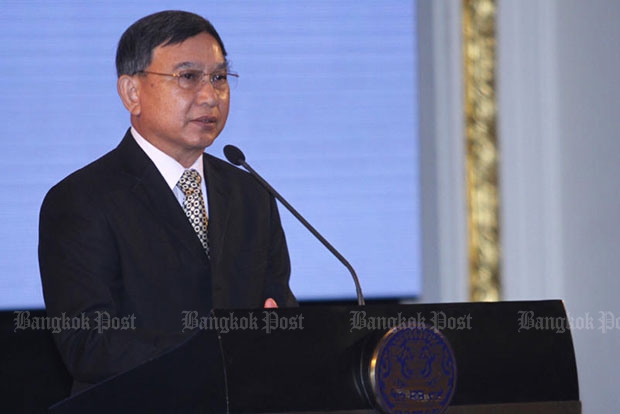
The quality of Thailand's education remains unsatisfactory, Deputy Prime Minister Prajin Juntong admits.
Speaking at the presentation of the government's one-year achievements Wednesday, ACM Prajin said the standard of education remains low, as reflected by the 46th ranking worldwide which it received from the World Economic Forum (WEF).
Thailand's university education was also ranked 8th among the 10 Asean member countries, added ACM Prajin.
ACM Prajin said the low quality of Thailand's education was caused by several factors such as quality of teachers and an education system that did not encourage students to practice analytical skills.
The government also found Thai students spent too much time inside classrooms -- up to 86% of their entire schooling period. Only 14% of that period involved out-of-class activities.
The Education Ministry rolled out a pilot project to cut school hours to 70% of total schooling time and encourage students to attend optional activities outside class.
"This year, we have launched the project in 3,300 schools nationwide. We expect to expand it to 14,000 schools next year before it is fully introduced in 30,000 schools across the country in 2018," he said.
Aside from education, ACM Prajin said the government will spend more on research and development, increasing its share of GDP from 0.48% to 1% in 2018.
The government will also encourage schools to recruit more research personnel -- 11-12 per 10,000 population, up from eight researchers per 10,000 people now.
On the transport outlook, Transport Minister Arkhom Termpittayapaisith said the ministry is proposing construction of 10 electric rail routes in Bangkok and several railway developments.
The government's transport investments are based on prospects over the next 30 to 50 years.
"We expect that funds invested in infrastructure development will raise GDP by the middle of next year and will help the economy for at least a decade," added Mr Arkhom.